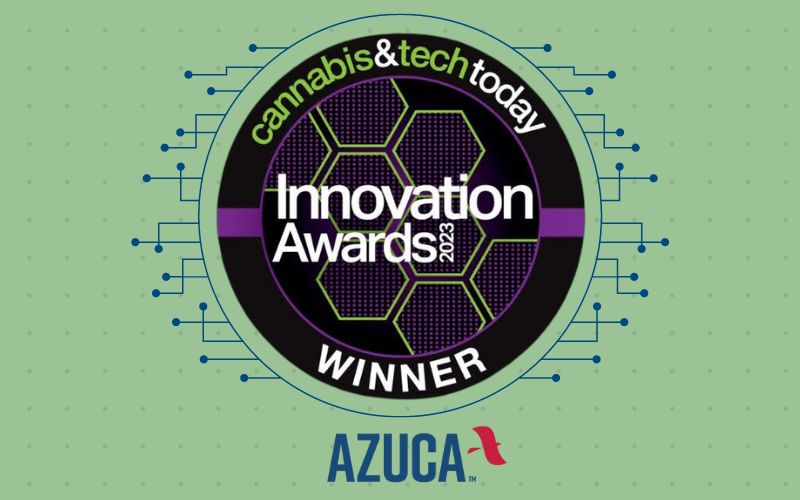There’s no question that the cannabis industry is booming and changing daily. MJBizDaily recently released a publication that expects marijuana sales to boost the economy by $92 billion in 2021 alone. That statistic is up 30% from last year, and the same analysis predicts it will reach upwards of $160 billion by 2025.
With all of this incredible growth, significant changes are on the horizon. So, we decided to ask five top leaders in the cannabis and CBD industries about the changes they anticipate happening in the next five years.
Here’s what they shared.
1 . Products Will Become More Accessible to the Consumer
“[The majority of CBD products] are trying to be luxury brands and premium brands. And that just isn’t a sustainable marketplace, nor what serves most consumer needs,” explains Sequoia Prince-Lazarus, Founder and CEO of Lazarus Naturals.
He founded his company to fill a void in the marketplace, and his mission was to make farm-to-bottle CBD products that were both effective and affordable. He believes we’ll see more accessible products like his in the future, and in the next five years the industry will normalize, and prices will fall.
“I think [brands] are trying to effectively milk it for all it’s worth before the prices come down,” he shared. And the high prices are coming at the expense of consumers.
Because luxury brands are nearly ten times the cost of typical supplements, it’s difficult for the average consumer to include CBD as part of their health routine.
As more and more brands enter the marketplace, Price-Lazarus predicts that we’ll see a lot more commoditization and more affordable brands. “Eventually, the prices will be no more than twice the price of normal supplements, and they may even be more affordable than over-the-counter drugs or at least similar prices,” he shared.
2. Tailored Delivery Methods to Fit Each Use Case
As more and more scientists research cannabinoids from a medical perspective, Price-Lazarus also predicts that we’ll see delivery methods tailored to each use case. “Right now, we’re operating off of anecdotal evidence for the most part—and also a few research papers,” he shared.
But as medical research expands, he predicts scientists will know which delivery methods are most effective for treating each ailment. “You’ll have to understand market trends and consumer preference and pair that in.
But I think it will be more important to know what type of cannabinoids, at what exact levels, and determining the right and proper serving,” he explained.
As the industry better understands the answers to these questions, more brands will take a scientific approach to how CBD should be delivered. Delivery methods that fit the use case of those substances will reign supreme, meaning more effective products for consumers.
3. Brands Will Understand the Power of Cannabinoid Combos
Because there’s not very much research done on isolated cannabinoids that aren’t THC, Marcus Quinn, CEO of Your CBD Store, says there’s tons of opportunity to study the combination of cannabinoids. “[Medical research] hasn’t even begun to look at how [certain cannabinoids] work together,” he explained.
Quinn and his wife, Rachael Quinn, founded their company after using CBD products to treat Rachael’s Crohn’s disease. After finding much-sought-after relief from the hemp products, the duo realized they could help heal others with the supplement.
And they even began creating their own products, which are tested and certified by ISO-accredited labs.
“[The industry] looks totally different than it did five years ago. And I think five years from now, it’s going to look totally different, too,” Quinn explained. “We know CBD somewhat blocks THC, but we don’t know if that affects the efficacy of the THC. And now, we know about even more cannabinoids, like CBG and CBN.”
Quinn believes that as interest peaks and regulations change, more researchers will start asking the right questions. “Like, what [cannabinoid combos] are the best? Does it vary from person to person? Or are there different ratios that give you better [results]?”
If brands want to survive in the next five years, their offerings can’t remain stagnant. Because more innovative brands will force the industry to stay on the cutting edge.
Brands that thrive will identify the cannabinoid combination trends. They’ll work with the research and listen to the science. And they’ll adapt their products accordingly to provide the best in the market.
4. Brands Will Focus More on Developing People
According to Nichole LaMay, Head of HR and Culture at Mammoth Distribution, cannabis brands have left employee development on the table for far too long. “There’s an opportunity for growing and developing people in this industry,” she explained. “So being able to have solid learning, development and succession plans that continue to evolve and grow employees will be important.”
She says brands will need to take an innovative and unique approach to these programs if they want to reach and resonate with their audience. They’ll also need to invest in performance-proven c-suite leaders who align with their culture.
“Having people who are passionate about what they do helps you drive everything you’re doing,” she explained. “When you have a healthy, robust culture where people want to come to work and want to collaborate for the greatest good, you see the greatest results.”
5. More Small Businesses to Help Local Communities and Support The Global Good
Thomas Rimbach, Co-Founder, and CEO at Baked Bros, says predicting the next five years is challenging. “Because where I want to see it and where we might end up —with a bunch of money and corporate backing —are two different directions.”
He hopes that small businesses in America will be able to keep and maintain the footing they’ve helped build thus far. “I’d like to see small businesses helping local communities and supporting globally, but I don’t know how it’s going to work out once it’s federally legal and big money opens up.”
Rimbach told us there’s one thing he knows for sure: Small businesses (like his) will drive the industry forward with more sustainable business practices and put consumers first. “We want to prevent [the cannabis industry] from going to this corporate setting—where people are forgotten and treated as a ticket,” he shared.
Predicting what’s next in cannabis is a tall order. With rules that vary from state to state, constant regulation changes, and a chance to become federally legal, this industry is constantly changing. Whatever happens next will make or break the brands that built the industry—and only the most innovative will survive.
Author
-
Jenae Nichols is the business development and marketing specialist for Y Scouts. Learn more at httpsss://yscouts.com/.







